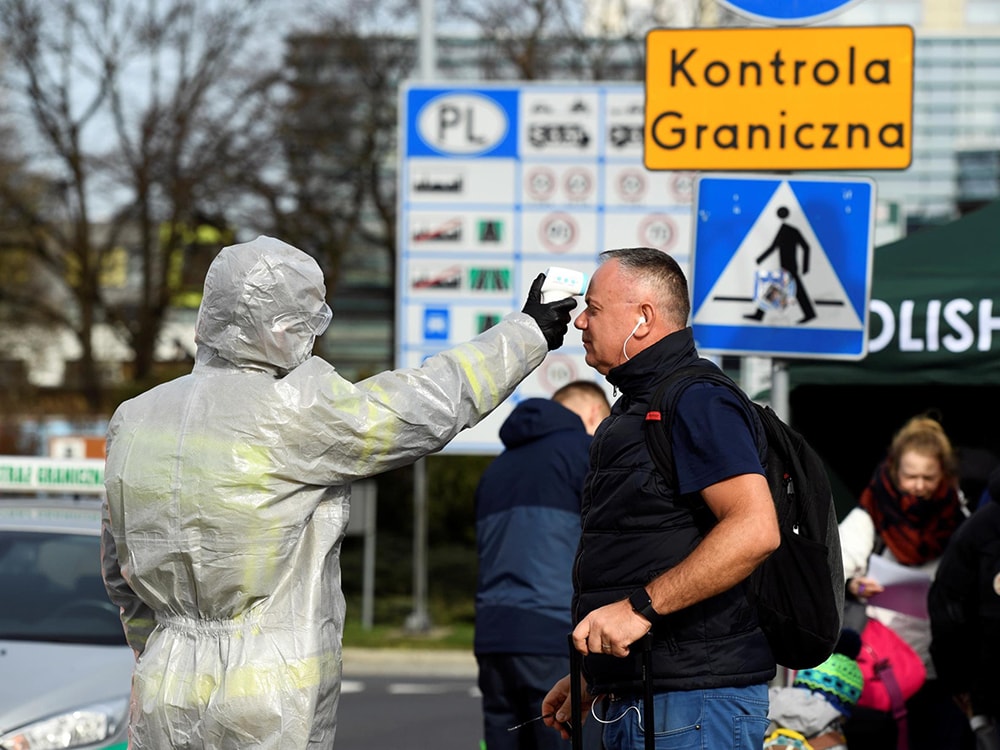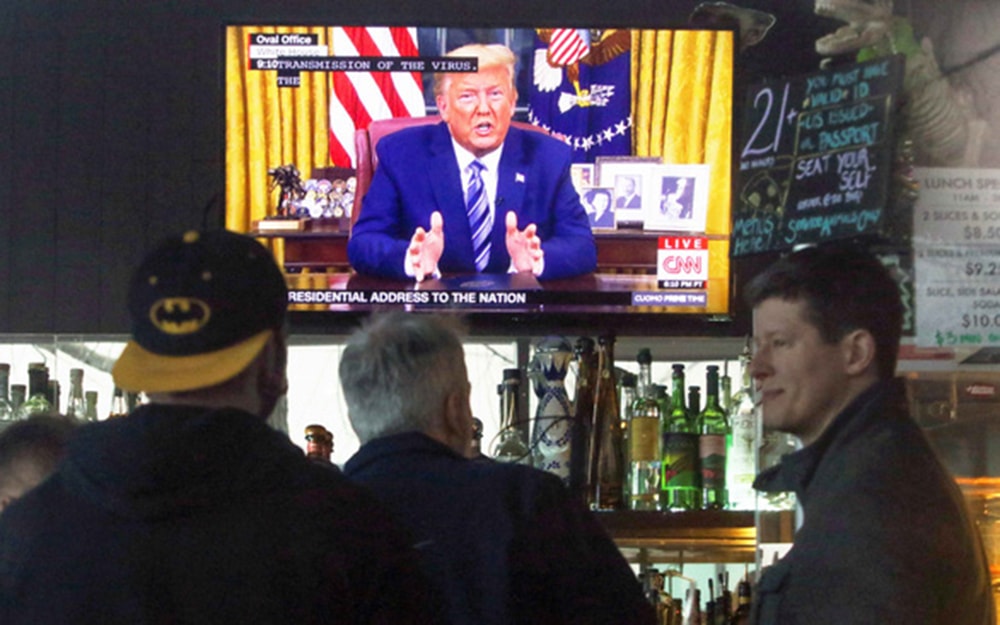Covid-19 pandemic in Europe: Challenging normative values in the 'old continent'
(Baonghean) - The European Union (EU) is the world's largest economic and political union, always proud of its values of solidarity and unity. But since the "disaster" caused by the Corona virus, the facade of an alliance full of values considered to be the norm is gradually being challenged. The Covid-19 pandemic is being seen as a "test" for the development of the "old continent".
The Alliance is in disarray…
The Covid-19 pandemic is the worst crisis in Europe, if not more complicated than the migration crisis (2014) and the sovereign debt crisis (2009). The Corona virus has not only caused panic in Europe but also exposed many realities that the EU has long been deluding itself about: decay, aging, lack of cohesion and the dominant populist tendency.
Just look at the way Italy has been “abandoned” as described by the European press, enough to see how problematic the criteria of “union and solidarity” in the EU are. The number of virus infections and deaths has increased rapidly, leaving the normally peaceful “boot-shaped” country unable to react. The director of the country’s Civil Defense Agency, Angelo Borrelli, admitted that the country is in urgent need of masks and medical protective gear.
 |
| Italy warns of shortage of medical equipment to fight Covid. Photo: AFP |
In the past week, Italy has ordered 55 million masks from manufacturers around the world and has called for urgent assistance from EU countries. However, the urgent call has been met with a deafening silence. Currently, only Germany has agreed to provide Italy with 1 million masks. In addition, the only other country willing to provide medical assistance to Italy is China, a country outside the European Union.
The idea of European solidarity and a continent without borders where citizens can travel and work freely, which is the pride of the EU, has now become a “big door” for the virus to penetrate. Following Italy, Denmark, Spain, now Germany has also announced “border closure”. But the reason for the lockdown in Germany is not only to limit the spread of the virus but also to prevent citizens of other countries from rushing to buy goods to stockpile. The European press talks more about this reason than about preventing the virus. In this aspect, it is clear that the epidemic crisis has revealed the fact that countries are pursuing the approach of “taking care of themselves” before “supporting others”.
The President of the European Commission admitted that this is a worrying approach, when Europe needs unity the most to overcome difficulties. But the problem is that perhaps even the leaders of the union have not found a solution to take joint actions. The sessions of the European Parliament in the past two weeks, although trying to find a solution, are far from the requirements of reality.
 |
| Along with Italy, Denmark, Spain, Germany also announced border closures. Photo: EPA |
The question of whether to close the Schengen area (which allows free movement) or just to countries with high infection rates is also a matter of disagreement within the bloc. So the EU is now in a dire situation. Faced with a virus that knows no borders, the modern EU is having to erect borders everywhere. But each country is doing it differently and the disjointed steps are increasing the sense of separation and division.
These realities will contribute to "deepening" the contradictions within the EU, giving populists and anti-unionists an excuse to attack more strongly the values that the EU has long pursued. It is still too early to predict all the consequences of this pandemic, but certainly in addition to the number of casualties and economic losses, politics will be a field that will be strongly impacted with worrying changes.
Allies apart!
The saying “only through hardships can we truly understand each other” is true in these tense and “difficult” days of the Covid-19 pandemic. European countries - the new epicenter of the world - have not only witnessed a “test” of the cohesion within the alliance but also of the transatlantic “alliance”. The event of March 11, 2020, when US President Donald Trump ordered a travel ban from Europe, further emphasized the division between the US and its allies when they needed solidarity the most. This was clearly a heavy blow to the EU as the US decision was considered completely unexpected, unilateral and without any prior consultation.
 |
| Americans watch Mr. Trump's speech announcing the travel ban from EU countries on March 11, 2020. Photo: Reuters |
Many scholars and political scientists were disappointed by the decision from the White House Oval Office. They recalled the events of 10 years ago when the first G20 meeting of finance ministers and heads of government of the United States and their European partners worked together to fight the global financial crisis. Or further back, in 2001, when the United States was attacked by terrorists on two towers in New York.
At that time, for the first time in the history of NATO, including the US’s European and Canadian allies, they triggered Article 5 of the alliance on mutual defense. Many criticized US President Donald Trump for not doing for Europe what they did for the US in previous crises. After the “cracks” in the alliance since Donald Trump became US President, perhaps the recent move once again posed many difficult challenges for the transatlantic alliance.
Many people believe that the ban from the US is not an impulsive decision like the personality of the White House owner, but it is a careful strategic calculation. Europe has been a security and economic strategic ally of the US for many decades, but the fluctuations of the world situation, many emerging economies, and many other concerns have made the US "reconsider" its role as an ally. That is why President Trump always brings up the story of "sharing the burden of security costs" with the EU in any meeting and dialogue with this bloc. From a certain perspective, "old and conservative" Europe is becoming a burden for the US.
 |
| The central square in Milan (Italy) is disinfected. Photo: EPA |
Therefore, even when Europe is "infected with the virus", President Trump also believes that it is the result of slow response and lack of decisiveness of European governments. And the travel ban from 26 EU member countries this time is no different from the message that the US will gradually reduce its responsibility to Europe. This is clearly a reality that EU countries will have to recalculate in their strategies and orientations for the future development of the bloc. In other words, after the public debt crisis and the migration crisis, the Covid-19 pandemic will be the third time that European countries face a test of their ability to cooperate and recognize their "place" in international relations.




.jpg)
![[Infographics] 5 biện pháp phòng, chống dịch COVID-19 [Infographics] 5 biện pháp phòng, chống dịch COVID-19](https://bna.1cdn.vn/thumbs/540x360/2025/05/22/anh-2.jpg)

-5b8619d675cc4f38cedd8c853332ddab.jpg)
